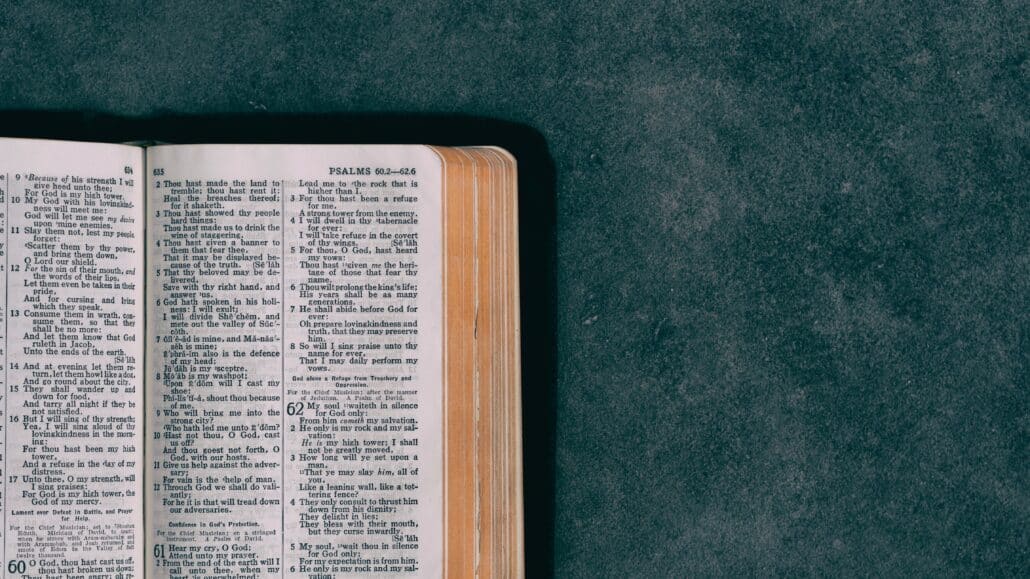In her spiritual memoir, What Was Lost: Seeking Refuge in the Psalms, writer Maureen O’Brien reflects on the many ways in which she found a home and a refuge in the biblical psalms, drawing strength from them and seeking in them a safe shelter from life’s storms.
She sat down with Franciscan Spirit for an interview about these cherished biblical poems.
Why the psalms? What draws you to them time and again?
I think the central reason is that the psalms are poems written in first person, from the point of view of the “I,” “my,” and “me.” Because of this, whenever I open them again, I immediately find a human voice there, a voice that’s crystal clear. The “I” is living a very rich life full of physical, spiritual, and emotional extremes. And this “I” is strikingly honest, not just in how it feels about the things (both up and down, good and bad), while at the same time being exceptionally forthcoming in the longing to be near God. This relationship to God has endless facets that move me because nothing is held back: frustration, trust, praise. It’s all there.
A worldwide pandemic, ongoing social and political unrest, myriad of problems in our homes and hearts. How can I use the psalms as a refuge?
It’s startling to read the psalms and find so much we can apply to our own fragile times. I’m no history expert, but I’ve been shown by the psalms that, throughout time, humans have been swirling within the “myriad of problems.” Because of the poetic skill with which the psalms are written, they transcend their own time and land in ours.
So, for example, I just randomly opened to a page, Psalm 46, and read, “God is our refuge and our strength, an ever-present help in our distress. Thus we do not fear, though earth be shaken and mountains quake from the depths of the sea” (1-2). Those lines, to me, are deeply contemporary, useful, and applicable. The psalms return to this idea again and again, affirming that God is a refuge from all the strife. So I think the psalms themselves can become a refuge because no matter what is happening in our world they point us to God over and over, with such beauty and conviction.
What would be your advice to someone encountering the psalms for the first time? It can be overwhelming!
I completely understand that feeling of intimidation. Even with my book on the psalms out in the world now, I can feel that. Sometimes they still seem foreign, dense, and strange. But I really want to stress that I believe there’s no wrong way of reading them. For me, in these years of looking at them closely, I’ve always allowed myself to flip through pages and scan until my eye alights on a couplet or two that speaks to me at that moment.
You don’t have to read in order, or even take in the entire psalm. We can trust that we will be “fed” by the words. You can sift through them for a bit, until you find the gem you need. For example, I just looked down and read, “Answer me Lord, in your generous love; in your great mercy turn to me” (Ps 69: 17). I think we read the psalms with our hearts. We might not understand them fully, and that’s okay. What matters is that we feel them, even if only a few lines here and there, because those few lines nourish our own personal and intimate relationship with God for that moment, that day. There is no one “correct way” to enter to psalms. If you seek them, they have a way of meeting you.
Do you have a favorite psalm? If so, why?
Of course Psalm 23 is the perfect psalm, but the one that has served me the most is Psalm 139. Now I know I said it’s OK to glean meaning from smaller sections and snippets, but I also love this psalm because the entire poem, from beginning to end, works for me, guides and fulfills me. It just has this majestic sweep that never fails to engage me! It’s like returning to a masterpiece painting and beholding its beauty again.
Because David was one of the world’s greatest poets, he actually articulates the vastness of God, yet also God’s nearness. The lyricism of this one is unmatched. In all honesty, this psalm has greatly reduced the feeling of alienation and loneliness in my life because of the gorgeous way he describes God’s omnipresence. I never tire of how David speaks directly to God with words such as “behind and before you encircle me” (5).
What is your hope for your new book What Was Lost: Seeking Refuge in the Psalms?
My hope is that readers will see their own spiritual journeys toward a deeper relationship with God reflected in the psalms, and by doing so, also see how much beauty is there, simply by being on that path. I believe that these are among the greatest poems ever composed. My wish is that readers reflect on the twists and turns, obstacles and miracles that they have encountered in their own lives. I would love for readers join me in this immersion into the psalms as the useful and beautiful works of art that they are.








